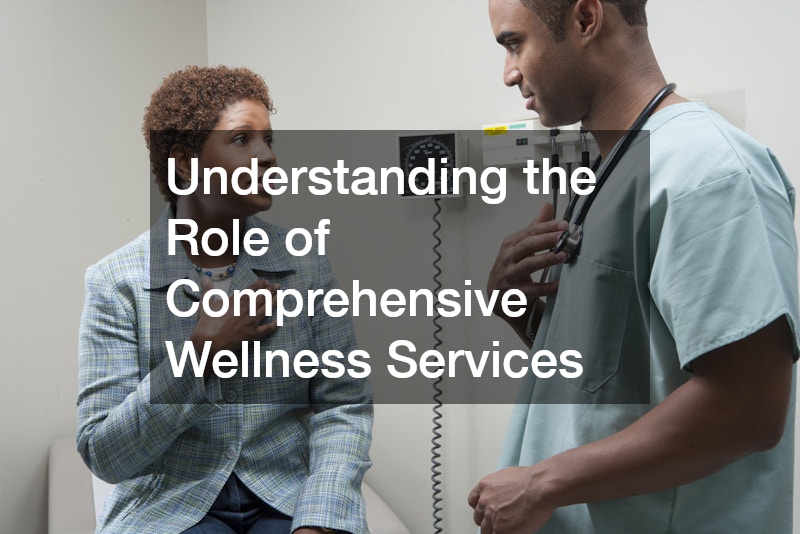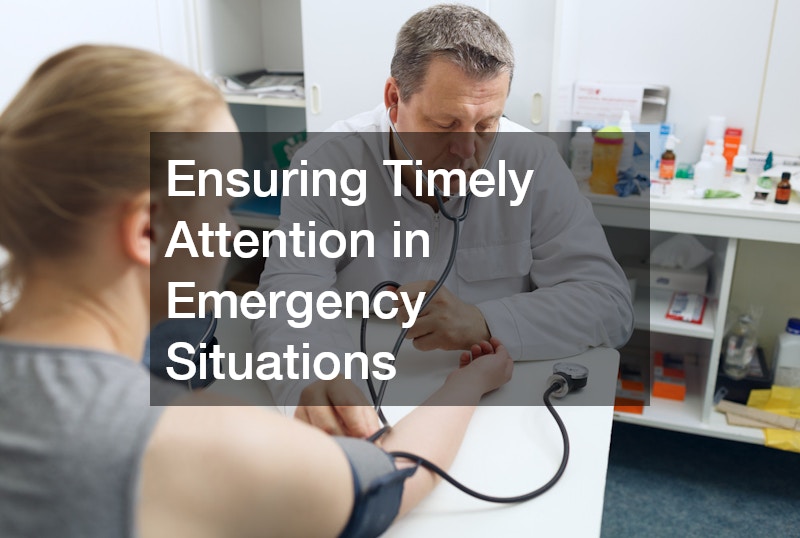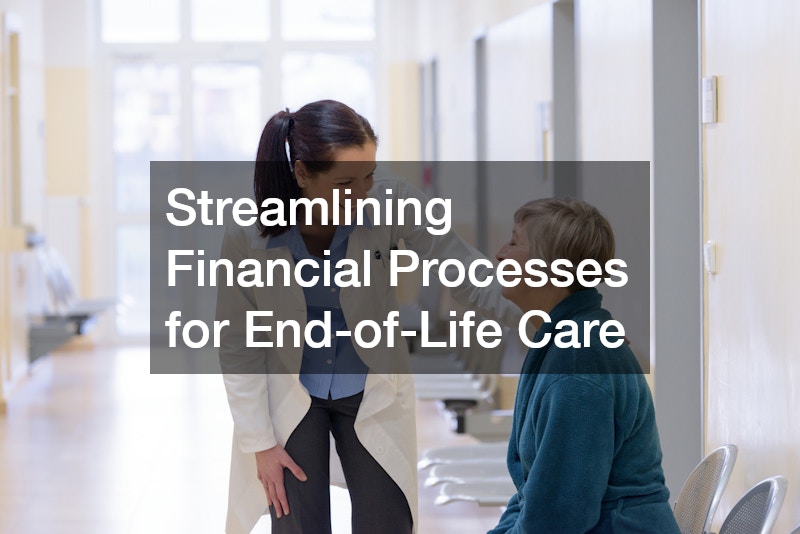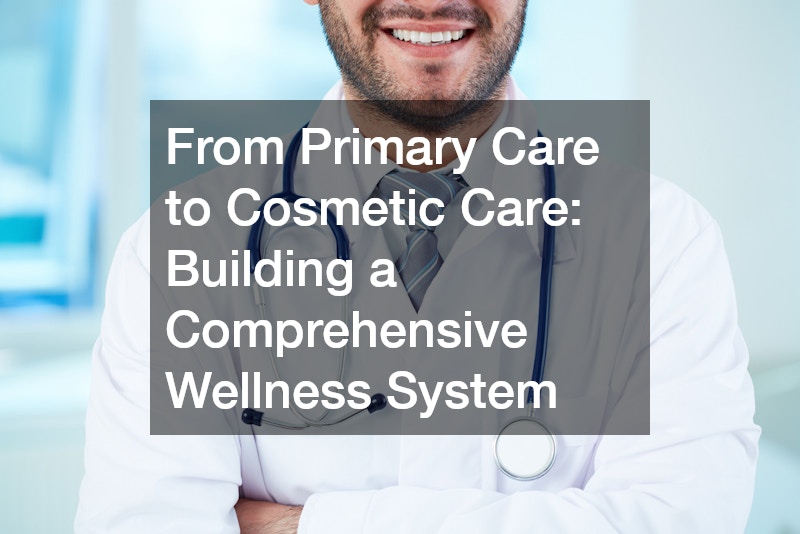Creating a truly effective approach to health and wellbeing involves more than addressing immediate medical needs. A comprehensive wellness system is built on the idea of proactive care, preventive strategies, and personalised support that considers every aspect of an individual’s physical, mental, and emotional health. This holistic approach recognises that wellbeing extends beyond isolated treatments, connecting various services and practices to support long-term quality of life. By integrating multiple facets of care, it ensures that each person receives attention that aligns with their unique needs, fostering resilience and overall satisfaction.
Developing this type of wellness system requires thoughtful planning and coordination. From routine check-ups to specialised therapies, combining services helps prevent gaps in care and promotes seamless experiences for individuals and their families. A robust framework also adapts to changing circumstances, whether it’s new health challenges or evolving personal goals, ensuring that support remains consistent and effective over time. This comprehensive perspective allows individuals to focus on thriving rather than merely reacting to illness or discomfort.
Understanding the Role of Comprehensive Wellness Services

A comprehensive approach relies on foundational services that support ongoing health maintenance. These services encompass routine check-ups, preventive screenings, lifestyle guidance, and coordinated care plans. By prioritising these essentials, individuals can proactively manage their health, address emerging concerns early, and cultivate habits that contribute to long-term wellbeing. Such a system goes beyond treating illness, emphasising education, support, and continuity of care to empower individuals to take an active role in their health journey.
Primary care is central to this approach, serving as the first point of contact for most health concerns. It provides ongoing monitoring of general health, identification of risk factors, and referrals to specialists when necessary. Practitioners act as guides, helping patients navigate a complex healthcare landscape while ensuring that care remains integrated and personalised. This continuity allows patients to build trusted relationships with their providers, making it easier to address both everyday health needs and more complex medical challenges.
Supporting Cognitive Health in Specialized Care Settings
Cognitive health is a critical component of an overall wellness system, especially as individuals age or face neurological challenges. Maintaining mental clarity, memory function, and emotional resilience requires attention, resources, and structured support. A comprehensive wellness system that incorporates cognitive health strategies focuses on preventive measures, early detection of changes, and interventions designed to maintain quality of life. These strategies may include educational programs, memory exercises, lifestyle adjustments, and access to healthcare professionals trained in cognitive care.
For those requiring specialised support, a memory care facility provides a tailored environment that addresses the unique needs of individuals experiencing memory decline or dementia. These facilities offer structured routines, personalised therapies, and specialised staff to ensure safety and engagement while promoting cognitive function. Integrating memory care facilities helps families access the right level of care at the right time, bridging the gap between general health services and more targeted interventions that enhance both mental and emotional well-being.
Social interaction and mental stimulation play essential roles in preserving cognitive function. Group activities, creative pursuits, and cognitive exercises help maintain engagement and reduce the risk of decline. Encouraging participation and fostering a supportive environment enhances overall quality of life for individuals at all stages.
Addressing Hearing Concerns Through Expert Evaluation

Hearing is a vital sense that impacts communication, safety, and overall quality of life. Maintaining auditory health and providing timely support when issues arise is an important part of a comprehensive approach. Early detection of hearing changes can prevent complications, improve social interactions, and enhance cognitive function. Combining preventive education, regular screenings, and follow-up care ensures individuals receive the guidance they need to protect and optimise hearing health.
An audiologist plays a crucial role by offering expert evaluation, diagnosis, and treatment of hearing-related concerns. They can identify hearing loss, recommend assistive devices, and provide therapy or counselling to improve auditory function and overall well-being. Regular check-ups allow individuals to monitor changes, receive personalised solutions, and maintain an active and engaged lifestyle, demonstrating how specialised services integrate seamlessly into broader care.
Beyond professional evaluation, daily habits such as protecting ears from excessive noise, maintaining ear hygiene, and monitoring changes in hearing contribute to long-term auditory health. Educating individuals and families about these preventive measures reduces the likelihood of untreated hearing loss affecting quality of life.
Managing Recovery After Unexpected Injuries
Injuries, whether minor or severe, can disrupt daily life and challenge overall health. Supporting individuals through these events requires coordinated care, rehabilitation resources, and preventative strategies to avoid future incidents. Recovery is more effective when medical professionals work together, focusing not only on physical healing but also on emotional resilience and ongoing health management. This integrated approach ensures that setbacks do not derail your long-term wellness system.
Auto accident injury requires specialised attention to address both immediate trauma and long-term consequences. Managing such injuries often involves collaboration between emergency care, physical therapy, and follow-up medical services. Tailored recovery plans help patients regain mobility, reduce pain, and prevent further complications. By incorporating targeted care for accident-related injuries, individuals receive comprehensive support during a critical and often stressful period.
Psychological support is essential during recovery from unexpected injuries. Emotional resilience, stress management, and patient education help individuals navigate the recovery process with confidence. Integrating both physical and mental health strategies ensures holistic care and supports long-term wellbeing beyond immediate treatment.
Ensuring Timely Attention in Emergency Situations

Emergencies can occur without warning, and access to prompt medical care is essential for reducing complications and improving outcomes. Integrating strategies to provide rapid response while maintaining continuity of care is crucial. Planning for urgent situations, educating individuals on when to seek care, and streamlining access to services are all components of a system designed to protect health proactively. Such preparedness fosters confidence and security, allowing individuals to focus on recovery rather than logistics.
Urgent care centers provide immediate attention for conditions that require prompt evaluation but are not life-threatening. They bridge the gap between primary care and emergency departments, offering convenient access to medical expertise and essential treatments. Including urgent care centers ensures timely interventions, shorter wait times, and continuity in overall health management, helping emergencies be handled efficiently and safely.
Educating communities on recognising symptoms and responding appropriately can significantly improve outcomes during emergencies. Public awareness campaigns, first-aid training, and easy access to information strengthen your wellness system’s capacity to protect individuals in critical moments.
Assessing Developmental and Behavioral Needs in Children
Supporting children’s growth involves careful attention to both physical and cognitive development. Early identification of developmental or behavioural concerns can improve long-term outcomes and promote overall well-being. Structured assessments, ongoing monitoring, and targeted interventions are essential to ensuring children reach their full potential. By addressing these needs comprehensively, families can access resources and strategies that support healthy growth.
ADHD testing plays a pivotal role in evaluating attention and behavioural patterns in children. These assessments help identify challenges that may affect learning, social interactions, and daily functioning. Early diagnosis allows for tailored strategies, educational support, and behavioural interventions that improve quality of life, promoting balanced and sustained development.
Beyond formal assessments, fostering supportive environments at home and school enhances children’s progress. Encouraging positive routines, promoting social engagement, and providing emotional support contribute to overall well-being. Combining professional evaluation with practical daily strategies offers a well-rounded approach to childhood development.
Streamlining Financial Processes for End-of-Life Care

Planning for end-of-life care involves more than medical decisions; it requires careful attention to administrative and financial details. Support for families by providing guidance on planning, documentation, and coordination reduces stress during emotionally challenging times. Organising resources, understanding insurance coverage, and aligning care with personal values are all critical elements that ensure individuals and their loved ones can focus on comfort and dignity.
A hospice billing company helps manage the financial and administrative aspects of end-of-life care. They handle claims, coordinate with insurance providers, and ensure accurate billing, allowing families and caregivers to focus on patient comfort rather than paperwork. Professional billing support makes end-of-life care smoother, more transparent, and less burdensome, reflecting the commitment to holistic wellbeing.
Clear communication and advance planning strengthen the process by reducing confusion and stress for families. Establishing expectations, providing guidance on available options, and addressing logistical concerns help maintain focus on quality of care and emotional support, creating a more compassionate approach to end-of-life planning.
Optimizing Billing Through Professional Support Services
Efficient administration is a vital but often overlooked part of comprehensive care. Streamlined billing, documentation, and coordination reduce stress for patients and healthcare providers alike, allowing care to remain the central focus. A well-managed wellness system ensures accuracy, timeliness, and clear communication, fostering trust and confidence in the overall care experience. Administrative strategies deliver seamless, integrated support.
A third party medical biller handles complex claims, verifies documentation, and liaises with insurance companies. Their expertise ensures that billing processes are accurate and compliant, minimising errors and delays. Professional billing support allows healthcare providers to dedicate more attention to patient care while patients experience clarity and consistency in financial matters.
Modern technologies such as automated billing platforms, digital recordkeeping, and secure communication tools further strengthen administrative efficiency. These innovations reduce manual errors, improve turnaround times, and allow healthcare providers to focus more fully on patient care.
Enhancing Physical Appearance Safely and Effectively
Physical well-being often intersects with self-confidence and overall quality of life. Personal appearance and body image play important roles in emotional health, social interactions, and self-esteem. Safe, informed approaches to aesthetic improvement can support both mental and physical well-being. Integrating appearance-related services ensures individuals receive guidance, education, and follow-up care that complements broader health goals.
Liposuction is one procedure that may improve body contour and self-image. When performed by qualified professionals, it can provide targeted results while minimising risks. Safe, supervised aesthetic interventions combine medical oversight, recovery support, and personalised guidance to enhance both physical and emotional outcomes.
Beyond surgical interventions, adopting healthy lifestyle habits such as exercise, nutrition, and stress management contributes to overall satisfaction with appearance. Encouraging these habits alongside aesthetic treatments ensures balanced care, promoting both external results and internal well-being.
Coordinating Routine Health Maintenance for Long-Term Wellbeing
Sustaining overall health requires regular monitoring, preventative care, and coordinated attention to individual needs. Consistent engagement with healthcare services empowers individuals to maintain their physical and mental health over time. Routine assessments, personalised wellness plans, and continuity of care help people stay proactive rather than reactive to illness or complications.
A local plastic surgeon provides expert consultation, surgical care, and follow-up for patients seeking reconstructive or aesthetic procedures. Integrating these services into broader health management ensures that interventions align with your long-term wellness system, supporting recovery, safety, and satisfaction. Coordinating routine care with specialised services offers a holistic approach that balances appearance, function, and overall health.
A personalised wellness system that includes diet, exercise, and preventative screenings enhance long-term health outcomes. By monitoring progress and adjusting strategies as needed, individuals are better equipped to sustain improvements and maintain a high quality of life.
Promoting Long-Term Health Through an Integrated Approach
Building a comprehensive wellness system requires thoughtful integration of a wide range of services, from primary care to specialised medical and aesthetic interventions. Such a system prioritises continuity, preventive strategies, and personalised support to address both physical and emotional health. By connecting various providers, assessments, and procedures under a unified approach, individuals can navigate their health journey with confidence and clarity, ensuring that no aspect of well-being is overlooked.
A fully developed framework not only addresses immediate health concerns but also anticipates future needs, supports recovery, and fosters personal growth. From routine maintenance to targeted interventions, each component works together to promote a higher quality of life. By combining medical expertise, administrative support, and personalised guidance, individuals are empowered to take control of their health, achieve their goals, and maintain long-term wellbeing.
Continuous evaluation and adaptation ensure that your wellness system remains responsive to changing needs. Incorporating feedback, tracking outcomes, and integrating new evidence-based practices allow care to evolve and improve over time. This dynamic approach ensures that services remain effective, efficient, and holistic, reinforcing long-term health and resilience.






